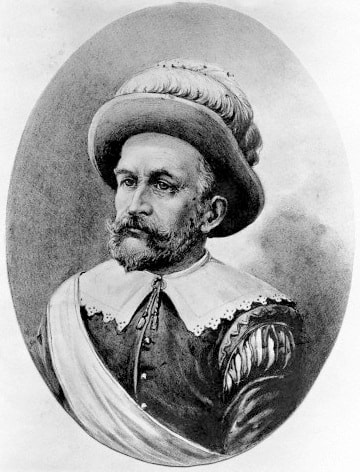 Peter Minuit (Public Domain)
Peter Minuit (Public Domain) According to researchers at the National Library of the Netherlands, "The original inhabitants of the area were unfamiliar with the European notions and definitions of ownership rights. For the Indians, water, air and land could not be traded. Such exchanges would also be difficult in practical terms because many groups migrated between their summer and winter quarters. It can be concluded that both parties probably went home with totally different interpretations of the sales agreement."
A contemporary purchase of rights in nearby Staten Island, to which Minuit also was party, involved duffel cloth, iron kettles, axe heads, hoes, wampum, drilling awls, "Jew's harps", and "diverse other wares". "If similar trade goods were involved in the Manhattan arrangement", Burrows and Wallace surmise, "then the Dutch were engaged in high-end technology transfer, handing over equipment of enormous usefulness in tasks ranging from clearing land to drilling wampum."
Minuit conducted politics in a measure of democracy in the colony during his time in New Netherland. He was highest judge in the colony, but in both civil and criminal affairs he was assisted by a council of five colonists. This advisory body would advise the director and jointly with him would develop, administer, and adjudicate a body of laws to help govern the colony. In addition there was a schout-fiscal, half-sheriff, half-attorney-general, and the customs officer.
 RSS Feed
RSS Feed